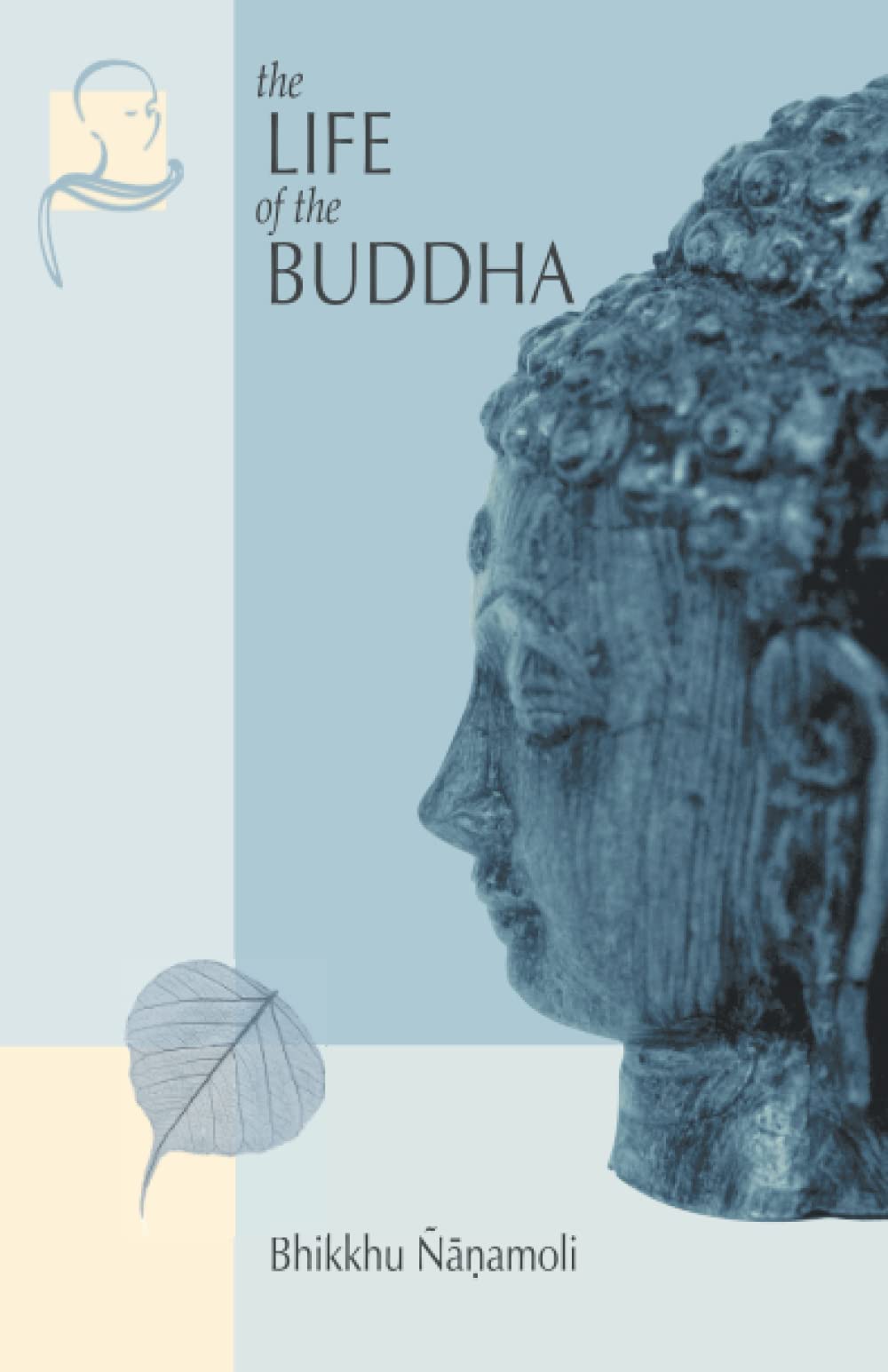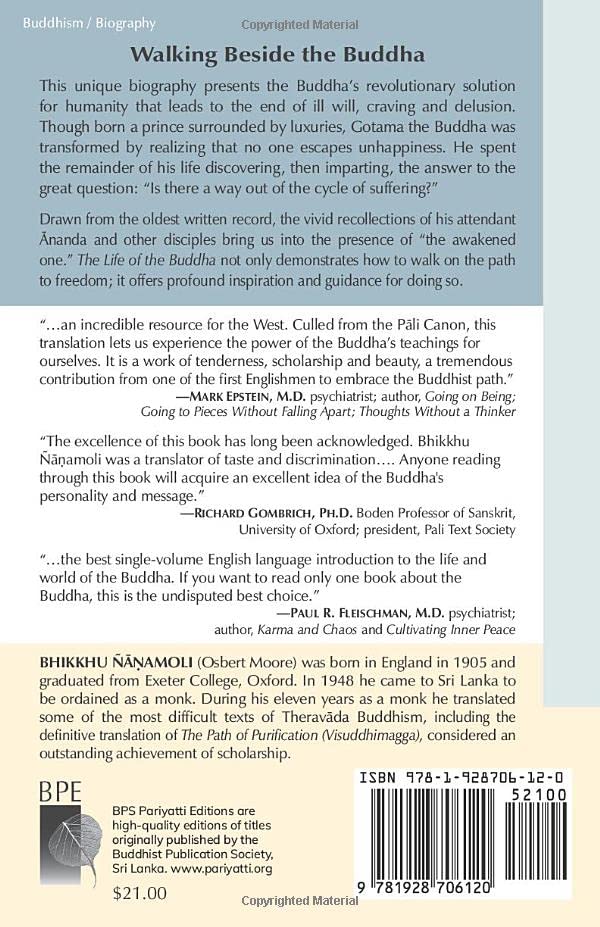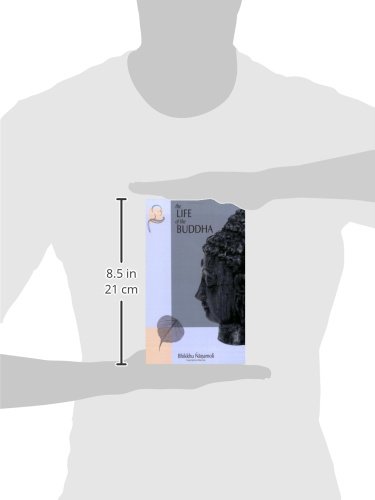



Full description not available
D**O
The Buddhist Bible
Buddhists have no equivalent of the Bible. But this book is perhaps is as close as it comes in the English language, a history of the Buddha, his teachings, and his community, derived entirely from original translations of the earliest sources.Shortly after World War II, Englishman Osbert Moore went to Sri Lanka to monastic vows - and a Buddhist name. In his 11 years of practice, he translated a number of important Buddhist texts to English, but perhaps his best known work is this history of the Buddha, published posthumously after a heart attack at the age of 55 in 1960.Bhikku Nanamoli's work is based on his own translations of the Tripitaka, the earliest written records of the Buddha and his teachings, recorded in the ancient language of Pali more than 200 years after the Buddha's death. The bulk of the material included monastic rules and a collection of suttas, the Buddha's lectures and sermons. There is no chronological history linking these rules and teachings, which requires a historian to search the Tripitaka for clues to help place events in some sort of sequence. Nanamoli consulted two additional sources in corroborating his sequencing, a 5th century BCE Pali source (the Acariya Buddhaghosa) and a 15th century Burmese history (the Malalankaravatthu).Besides problems of historicity, Nanamoli has in brining this text to a modern English readership to wrestle with issues of accuracy and style. As the Tripitaka was for nearly three centuries an oral tradition, it's structure was built on repetition, both of phrases and key ideas. As modern song writers employ a verse-chorus-verse-chorus pattern, so too did the monks of 2,500 years ago repeat elements in their verse to facilitate memorization. For a modern reader, these elements are initially quaint, but very quickly become tiresome. Nanamoli has judiciously elided most of the extraneous recycled verses, thankfully leaving in a smattering taste.The result is a work that reads like epic myth, with a flavor and texture lacking in modern biographies. This is often charming and engaging, as in the repetition throughout the text of key phrases, such as:+ Thus I heard. At one time the Blessed One was living at ...+ The Blessed One instructed and urged and roused and encouraged with talk on the Dhamma.+ She paid homage and sat down at one side of the Blessed One.+ He paid homage to the Blessed One and departed, keeping him on his right.+ The Blessed One set out to wander by stages to ....It is also to be found in refrains, as from this extract where the Buddha shows his exasperation with a monk who broke his vows by having sex with an alms giver's daughter:=====================================Have I not taught the Dhamma in various ways for the sake of dispassion, not for the sake of passion? Have I not taught the Dhamma in various ways for the sake of unfettering, not for the sake of fettering? Have I not taught the Dhamma in various ways for the sake of relinquishing, not for the sake of clinging? The Dhamma thus taught by me for dispassion, unfettering, and relinquishment you would conceive to be for passion, fettering and clinging. Has the Dhamma not been taught by me in many ways for dispassion, disintoxication, for curing thirst, for abolishing attachment, for severing the round of being, for exhausting craving, for dispassion, for cessation, for Nibbana? Have I not described in many ways the abandoning of sensual desires, the full understanding of perceptions of sensual desires, the curing of thirst for sensual desires, the eradication of thoughts of sensual desires, the allaying of the fever of sensual desires? (p159)=====================================Attentive readers will have no trouble comprehending the main ideas or following Nanamoli's narrative, though at times the text would benefit from explanatory notes. In some instances historical or cultural references are perplexing, such as fire chambers, the Four Divine Kings, or the Brahma Sahampati, the god that knows the Buddha's mind and as his better conscience intervenes from time to time to change the course of events. Conversation in verse between Buddha and his nemesis Mara is not attributed, causing the reader to have to parse the exchange. And there are times when an explanation of nomenclature would save time searching for references, such as Mara's Hindu name, Namuci. In order to preserve the historical accuracy of his text, Nanamoli provides no analysis or interpretation, an understandable decision but one that will leave many readers without a clear understanding of some of the more difficult theories, such as Dependent Origination. Thankfully, the author has collected most of these suttas on theory to a separate chapter on Doctrine.These are small quibbles, though, and in no way detract from the overall experience of the text or from an appreciation of the scholarship, expertise and effort that went into the translation, organization and composition of this book. It is recommended especially for Buddhists who'd like to sample the original source material without having to first master Pali.#
M**N
Order.
This book is well put together. I like how they start from the very beginning with how not everything in the Buddha's life is known before he became enlightened. So the book starts with the Sutra where the Buddha archives enlightenment and tries to arrange the Sutra in a way that shows how his teaching life went. The last sutra of course was the Mahaparinibbna sutra where the Buddha gives the last teachings and then passes on into Nibbna.
V**A
Very Useful Biography
I learned of Nanamoli via one of Stephen Batchelor's books. Nanamoli must have been an interesting man. His scholarly credentials are impeccable. The aim of this book is to say what can be said about the Buddha as found in the most reliable -- i.e, earliest -- Pali texts. He presents the material from four points of view, all woven together in more or less chronological order. The format works very well, assisting the non-scholar in getting a sense of the Pali Canon -- or so I think, anyway, since I'm a non-scholar!I wanted a reliable telling of the Buddha's story. I've read several well-known and generally recommended biographies, but I did not get a clear picture of how his teachings motivated others to preserve them accurately. After reading this book I'm a lot more certain that the wisdom we call 'Buddhism' was inspired by the teachings one man -- not an accumulation of teachings that grew willy-nilly from a variety of communities. Readers will be surprised to find a very sparse account of Siddhartha's first 29 years. On the other hand, the few passages Nanamoli is willing to use come straight from Siddhartha. They are very candid stories about a man who left his home because he was restless and unhappy. He clearly did not know what he was looking for. In that light, the stories of the five years preceding Enlightenment make a lot more sense.2600 years having passed since Siddhartha's lifetime. Most of us Americans have come to Buddhism via less than perfect books and lectures. Nanamoli's book lets us make a connection with the first teacher, so to speak, and this, I think is both refreshing and re-assuring.
A**I
amazing book on Buddha personality and teaching
The finest book written on Buddha’s teaching and his personality. The author takes the reader very close to Buddha on his own time and place.Definitely, Buddha’s energy is filled in his book and the bare translation of Pali into modern English is an unbelievable task.It is the blessing of Buddha deity that I was able to read this book.
A**O
Extremely satysfying reading
Although I've just discovered Buddhism, or perhaps because of that, I was kind of lost with many different doctrines (Theravada, Mayhana, Varajna, Zen, etc).So I wanted to go straight to the source, kind of hear the words from Buddha himself, without the taints of traditions and changes over the centuries.Despite of being a non native english speaker I managed to undestand the words, think about the orientations, rules and history.As others have said yes it's from the canon pali, has some ancient words, but it's the real deal, this book is amazing and I'm loving reading it and understanding the origin of some buddhist traditions.A must read.
Trustpilot
4 days ago
2 weeks ago